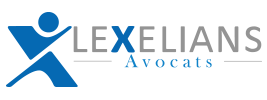The ALUR law
The ALUR Law, an acronym for "Loi pour l'Accès au Logement et un Urbanisme Rénové", is a major piece of legislation in France, adopted in 2014. It has introduced numerous changes in the real estate field, and more specifically in condominium management. This article aims to offer a comprehensive analysis of the impacts of the ALUR Law on co-ownership, focusing on the most significant aspects for co-owners, union council members and real estate professionals.
I. Background and objectives of the ALUR Act
The ALUR law was adopted against a backdrop of housing crisis in France. It has several objectives:
- Increase access to housing by facilitating the construction of new homes.
- Strengthen tenant protection and improve condominium management.
- Reduce housing inequalities by setting up rent control systems in tense areas.
With regard to condominiums, the law has introduced measures to improve transparency, management and governance of condominiums.
II. The main provisions of the ALUR Act for condominiums
1. The obligation to set up a separate bank account
Prior to the ALUR Act, condominium syndicates could hold condominium owners' funds in a joint account. With the coming into force of this law , each co-ownership must now have a separate bank account. This change is designed to increase financial transparency, protect co-owners' funds, and facilitate financial audits should the need arise.
2. The creation of a compulsory works fund
One of the major contributions of the ALUR law is the introduction of a compulsory works fund for all co-ownerships over ten years old. This fund, intended to finance major works in the condominium, must be replenished each year by a specific contribution representing at least 5% of the condominium's annual provisional budget. The aim is to anticipate major expenses and avoid unexpected calls for funds, often difficult to manage for some co-owners.
3. Introduction of a co-ownership summary sheet
To improve transparency and information for co-owners, the ALUR law also requires the creation of a co-ownership summary sheet. This document summarizes essential financial and technical data on the condominium. It must be updated every year by the managing agent and made available to all co-owners. It is particularly useful when selling a condominium lot, as it gives potential buyers an overview of the condominium's financial health and general condition.
4. Setting up a national condominium register
The ALUR law also introduced a national condominium register. This register, managed by the Agence Nationale de l'Habitat (ANAH), lists all condominiums in France. Each condominium must be registered and update its information every year. The aim of this register is to gain a better understanding of the co-ownership stock in France, and to identify those in difficulty, so as to be able to support them more effectively.
5. Regulation of management fees
The ALUR law also introduced regulation of syndics' fees. Prior to this law, fees charged by property managers were often considered too high and lacking in transparency. Now, fees are regulated by law, and a standard management contract has been introduced, specifying exhaustively the services included in the basic package and those that may be subject to additional fees. This enables co-owners to better understand what they're paying for, and avoid unpleasant surprises.
6. Shareholders' meetings by videoconference
To make it easier for co-owners to take part in decision-making, the ALUR law has opened up the possibility of holding co-ownership general meetings by videoconference. This measure is particularly useful for co-ownerships where the co-owners are geographically dispersed. However, the implementation of these virtual AGMs requires the prior adoption of this modality by the general meeting.
III. The impact of the ALUR Act on co-owners
1. More transparent and secure management
One of the first impacts of the ALUR law for co-owners is more transparent and secure management of their co-ownership. The introduction of separate bank accounts and the obligation to create a works fund strengthen the financial security of co-owners. In addition, the summary sheet and the national co-ownership register improve access to information and enable better co-ownership management.
2. Increased co-owner participation
The ALUR law also encourages greater co-owner participation in the life of the co-ownership, thanks in particular to the possibility of organizing general meetings by videoconference. This enables a greater number of co-owners to be involved in decision-making, even when they are unable to attend in person.
3. Better control of expenses
Last but not least, the regulation of management fees and the introduction of a works fund are contributing to better control of condominium expenses. Co-owners are now better informed about the costs involved in managing their condominium, enabling them to anticipate expenses and avoid unpleasant surprises.
IV. Challenges and criticisms of the ALUR Act
Despite its many advantages, the ALUR law has also attracted criticism. Some co-owners feel that the creation of the works fund represents an additional financial constraint, particularly for co-ownerships with modest incomes. In addition, the regulation of management fees has sometimes led to a reduction in the quality of services rendered, as management companies are forced to cut costs.
V. Conclusion
In conclusion, the ALUR Act has profoundly altered condominium management in France, with measures designed to improve transparency, financial security and condominium owner participation. While certain provisions may have been perceived as restrictive, they have nonetheless contributed to better condominium management and greater protection of condominium owners' interests.
For condominium owners and real estate professionals alike, it is essential to fully understand the implications of this law, to make the most of it and ensure optimal condominium management.

